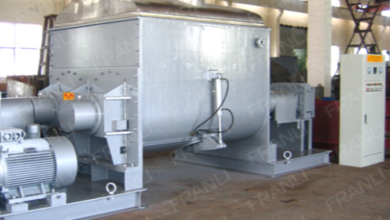Custom Home Builder Guide for Personalized Luxury Residences

A custom home builder specializes in designing and constructing homes tailored to the unique needs and preferences of each client. This process involves close collaboration on everything from architectural plans to material selections, ensuring the final product matches the homeowner’s vision. A custom home builder provides complete control over the design and build process, resulting in a personalized living space that standard homes cannot offer.
Choosing the right builder means selecting a team capable of managing all aspects of the project, from initial concepts to final finishes. Experienced builders often integrate design, construction, and project management to deliver high-quality craftsmanship, making the home both functional and aesthetically pleasing. This approach appeals to those seeking homes that reflect their lifestyle with exceptional attention to detail.
Custom Home Builder Services
Custom home builders provide a range of essential services that cover every stage of creating a personalized home. These services include initial design, sourcing materials for quality and durability, managing timelines and budgets, and overseeing the physical construction until the home is complete and ready for move-in.
Design and Planning Process
The design and planning phase begins with understanding the client’s lifestyle, preferences, and budget. Builders collaborate with architects and designers to create detailed blueprints and 3D models. This process ensures that the layout, style, and functionality align with the homeowner’s vision.
During planning, builders perform site evaluations and consider local building codes and zoning restrictions. They also help clients select cost-effective solutions and sustainable options. Clear communication at this stage prevents costly changes later in the project.
Material Selection and Sourcing
Selecting high-quality materials is critical for durability and aesthetics. Builders guide clients on options for structural components, finishes, and fixtures that suit the design and climate. They prioritize sourcing from trusted suppliers to maintain standards and avoid delays.
Custom home builders often use a mix of locally sourced and specialty materials. They balance cost, availability, and performance to meet client requirements. This phase involves comparing product warranties, environmental impact, and maintenance needs.
Project Management
Project management covers scheduling, budgeting, and coordinating all trades and subcontractors. Builders set deadlines and monitor progress to ensure the build stays on track. Regular updates keep clients informed about milestones and potential challenges.
Effective project management reduces risks such as delays and cost overruns. Builders also handle permits, inspections, and compliance with safety regulations. They act as the primary point of contact, managing communication between the client and construction team.
Construction and Finalization
During construction, the builder oversees every phase—from laying foundations to installing finishes. They ensure quality control through on-site supervision and address issues promptly. Builders coordinate inspections to verify adherence to plans and codes.
The finalization stage includes walkthroughs with clients to confirm satisfaction. Builders assist with addressing punch-list items and documentation for warranties and maintenance. They deliver a fully functional, custom-built home ready for occupancy.
See also: Financing for Small Businesses Explained: Key Options and Strategies for Success
Choosing the Right Custom Home Builder
Selecting a custom home builder requires careful analysis of their qualifications, past projects, and contract terms. Understanding these elements ensures the builder can deliver quality work within the desired budget and timeline.
Evaluating Experience and Credentials
Experience matters significantly when choosing a custom home builder. Builders with years of industry work tend to have refined skills and better problem-solving abilities during construction.
Credentials like licensing, insurance, and professional certifications prove legitimacy and adherence to safety and quality standards. These should be verified early in the selection process.
It is also important to check if the builder is a member of recognized trade associations. Such affiliations indicate commitment to ongoing education and industry best practices.
Reviewing Portfolios and Client Testimonials
Examining a builder’s portfolio shows the range and quality of their completed homes. A diverse portfolio with relevant project types signals versatility and expertise.
Client testimonials provide real insights into a builder’s reliability, communication, and craftsmanship. Positive feedback on timeliness and budget management is a strong indicator of professionalism.
It helps to look for case studies or references where homeowners share detailed experiences. This step reduces the risk of misalignment between expectations and results.
Understanding Contracts and Pricing
Contracts should clearly outline the scope of work, project timeline, payment schedules, and materials to be used. Builders who provide transparent, detailed contracts protect both parties.
Pricing must be broken down into specific components such as labor, materials, permits, and contingency allowances. Avoid agreements with vague or lump-sum pricing without itemization.
Understanding terms around change orders and warranties is critical. These terms affect how unforeseen issues and post-build defects are handled financially and legally.




